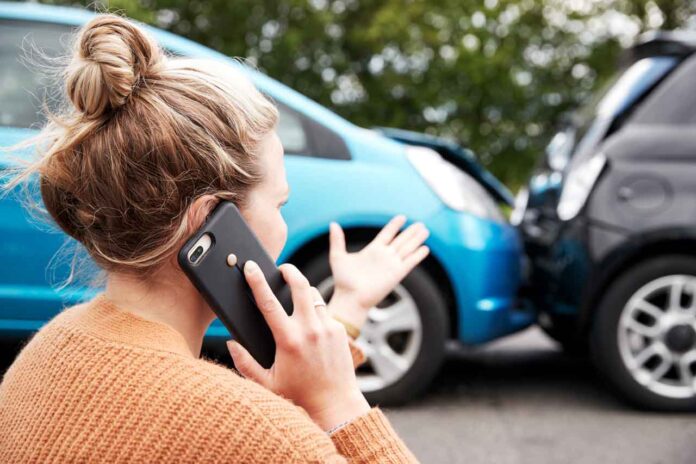Being in a car accident is stressful. Between the adrenaline rush and dealing with potential injuries, the last thing you want to worry about is filing a car insurance claim. But don’t fret! This guide will walk you through the process step-by-step, making it as smooth as possible.
Secure the Scene and Check for Injuries
First things first: ensure your safety and the safety of others involved. If there are injuries, call 911 immediately. Turn on your hazard lights and move your car to the side of the road, away from traffic, if possible.
Document the Accident
While waiting for help to arrive, gather as much evidence as possible for your car insurance claim. Take photos of the damage to your car, any other involved vehicles, and the surrounding scene. Include things like skid marks, traffic signals, and any visible injuries (with the injured person’s consent). This documentation will be crucial throughout the claims process.
Consider Seeking Legal Representation
While navigating the insurance claim process yourself is possible, find the right car accident lawyer for you if you have any concerns or complexities.
An experienced lawyer can:
- Advise you on your legal rights and options
- Help you negotiate a fair settlement with the insurance company
- Represent you in court if necessary
Exchange Information with the Other Driver(s)
Once it’s safe to do so, exchange contact information with all involved drivers. This includes names, addresses, phone numbers, driver’s license numbers, and insurance companies with policy numbers. Be polite and avoid assigning blame. Just focus on gathering accurate insurance information – you’ll need it to file your car insurance claim.
File a Police Report (If Necessary)
Not all accidents require a police report. However, it’s strongly recommended, especially if there are injuries, significant property damage, disagreements about fault, or hit-and-run situations. The police report will serve as an official document of the auto accident and can be crucial for your insurance claim. Make sure to note the police report number for your records.
Contact Your Car Insurance Company ASAP
Don’t delay! Inform your car insurance company about the accident as soon as possible. They might have specific protocols for reporting claims, so act quickly to avoid any complications down the line. You can usually contact them by phone, online, or through their mobile app.
Be Prepared to Answer Questions
When you contact your insurance company, be ready to answer their questions about the car accident. This includes details like the date, time, location, how the accident happened, and any injuries sustained. Be honest and accurate with your information, as any misrepresentation could jeopardize your claim.
File a Claim Form
Your insurance company will likely provide you with a claim form to fill out. This form will ask for detailed information about the accident, the vehicles involved, and any injuries sustained. Take your time and ensure all the information is accurate and complete. This includes details like the policy number from your auto insurance policy and the license plate number of any involved vehicles.
Submit Required Documentation
In addition to the claim form, your insurance company might require you to submit additional documents to support your car insurance claim, such as:
- Photos of the accident scene and vehicle damage
- A copy of the police report (if applicable)
- Repair estimates from qualified body shops (also known as auto body shops)
- Medical bills (if applicable) for any injury claims you plan to file
- Driver’s license and vehicle registration
Gather all the necessary documents before submitting your claim. This will help expedite the process.
Cooperate with the Insurance Adjuster
Your insurance company might send an adjuster to assess the damage to your vehicle. Be cooperative and answer their questions honestly. The adjuster will determine the extent of the damage and the value of your claim. This could impact the final settlement offer you receive.
Review the Settlement Offer and Negotiate (if necessary)
Once the adjuster evaluates the damage, your insurance company will present you with a final settlement offer. This offer represents the amount they’re willing to pay for repairs or to replace your vehicle. Carefully review the offer.
- Is it enough to cover the full cost of car repairs?
- Does it address any bodily injury claims or medical expenses you’ve incurred?
If you feel it’s inadequate, you might have room to negotiate.
Remember:
- Collision Coverage: Review your auto insurance policy to understand the extent of your collision coverage.
- Uninsured Motorist: Does your policy cover situations where the at-fault driver doesn’t have insurance (uninsured motorist coverage)?
- Underinsured Motorist: What about situations where the at-fault driver’s insurance policy limits are insufficient to cover all your damages (underinsured motorist coverage)?
- Medical Payments Coverage: Does your policy offer medical payments coverage to help cover medical bills regardless of fault?
- Rental Reimbursement: Does your policy offer rental car coverage while your car is being repaired?
In Closing
Dealing with a car accident can be overwhelming. But remember, you’re not alone! If things get complicated, don’t hesitate to reach out to an attorney specializing in car accidents. They can advocate for your rights and ensure you receive fair compensation.









